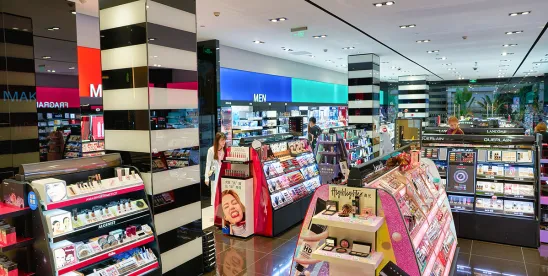Many brands have reformulated beloved products with “cleaner” ingredients, while others have curated a special selection of “clean” products to offer their customers. Advertisers’ efforts, however, can run into trouble if consumers reasonably believe the “clean” labeling does not match what is contained in the product. Sephora recently faced this issue in a purported class action challenging its “Clean at Sephora” seal. However, Judge David Hurd of the Northern District of New York dismissed the claims, finding the plaintiff had failed to adequately allege what exactly a reasonable consumer would find misleading about the seal. Finster v. Sephora USA, Inc., No. 22-cv-1187 (N.D.N.Y. Mar. 15, 2024).
Sephora, a cosmetic goods retailer, labels certain of its brands and products with the “Clean at Sephora” seal if they meet certain criteria set by Sephora. According to information on Sephora’s website, the “Clean at Sephora” seal signifies that a product complies with certain requirements focused on transparency in formulation and sourcing, as well as the avoidance of certain ingredients. For example, all “Clean at Sephora” products are formulated without parabens, sulfates, SLS and SLES, phthalates, mineral oil, formaldehyde, and other undesirable ingredients.
In Finster, the plaintiff claimed she bought certain products from Sephora in reliance on the “Clean at Sephora” seal believing that the products were “clean.” However, plaintiff claimed that Sephora’s representation mislead her because, contrary to her understanding, some “Clean at Sephora” products nonetheless contain alleged synthetic and harmful ingredients. In support of this allegation, plaintiff cited a laundry list of synthetic ingredients found in “Clean at Sephora” cosmetics she alleged were known to cause irritation or other human harm.
Judge Hurd disagreed, finding that plaintiff had failed to allege that a reasonable consumer would understand the “Clean at Sephora” label to mean that the products contained no synthetic or harmful ingredients whatsoever. The Court noted that none of the “Clean at Sephora” marketing materials cited by the plaintiff made any representation that those products were free of all synthetic or harmful ingredients—indeed, the advertising cited by the plaintiff explicitly said that products bearing the “Clean at Sephora” seal were formulated without specific ingredients known to be harmful to human health or the environment. Further, the Court found that the plaintiff had not alleged the purported harmful ingredients she claimed were in “Clean at Sephora” products were among those Sephora said were excluded. As such, the plaintiff had failed to allege Sephora materially misled consumers by selling “Clean at Sephora” products.
This case serves as a reminder to carefully scrutinize claims of consumer deception which rely on interpretations of advertising that run counter to definitions provided by marketers. Courts will dismiss claims of consumer deception where a plaintiff relies solely on his or her unreasonable understanding of a challenged term.




 />i
/>i
